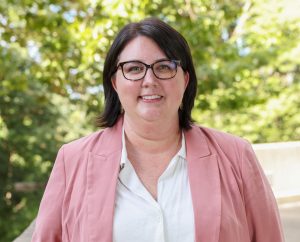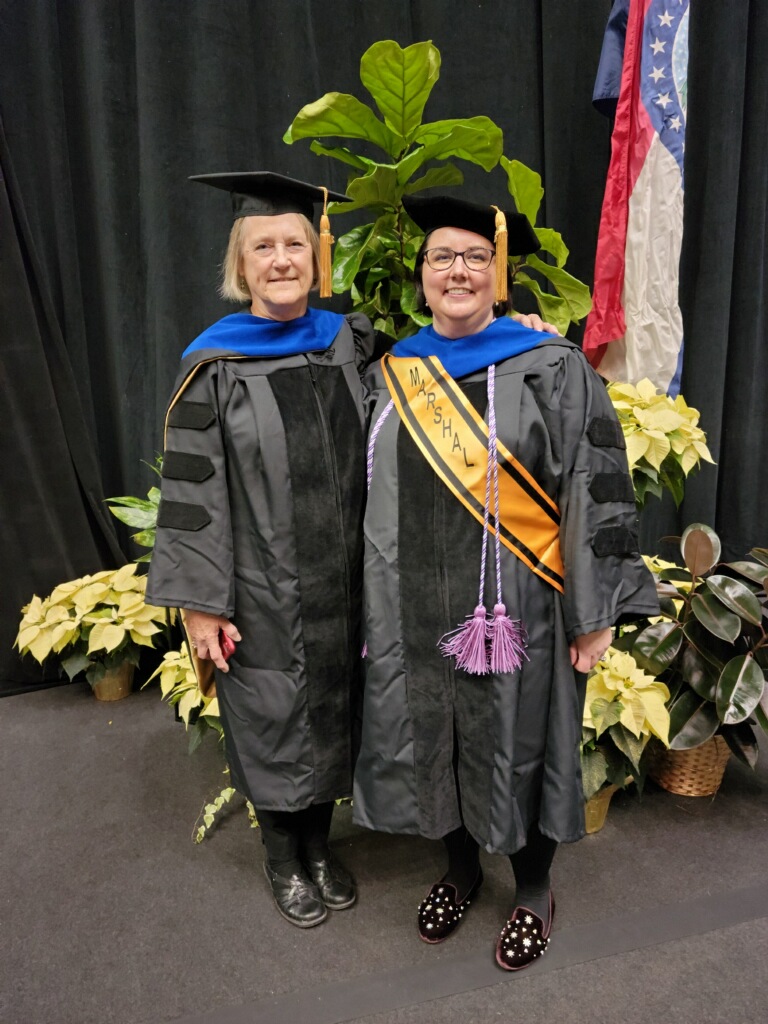Chelsea Howland, PhD'22 and advocate for health outcomes in rural settings, has the distinct honor of being selected as the doctoral student marshal for the MU graduate commencement ceremony on Saturday, Dec. 17.
Dec. 16, 2022

Chelsea Howland, PhD, RN, will be the Doctoral Student Marshal for this year’s Graduate School Commencement Ceremony at the University of Missouri. To be nominated and selected for this honor is one more accolade in an already successful PhD experience for Howland at the Sinclair School of Nursing (SSON).
Howland was part of the distance mediated graduate cohort and credits the program as the only way she would have been able to obtain a PhD. “When working and living in a rural community, there were not a lot of opportunities for me to travel a great distance to obtain my doctoral degree. With the online option, I could successfully further my education,” states Howland. She is also not shy when stating the professors at the school of nursing made the online experience rewarding. “My PhD mentor, Bonnie Wakefield, and many other faculty members kept us engaged and interacting during synchronous meetings,” Howland explains, “I don’t feel like I missed out by not being on campus all the time.”
Growing up in Brighton Illinois with a father who has Type 2 diabetes, Chelsea Howland is very familiar with the challenges facing rural Americans when it comes to health care accessibility. Able to empathize with those who live with chronic illnesses, it’s no surprise she became passionate about building interventions with technology to improve health outcomes in rural settings during her PhD preparation at the Sinclair School of Nursing.

When it came time to plan her dissertation, Howland took her passion and worked on research for Assessing the Feasibility and Acceptability of a Health Action Process Approach Physical Activity and Sedentary Behavior Self-Guided Workbook in Rural Adults with Type 2 Diabetes. “Separating physical activity and sedentary behavior was important in determining how small changes in a patient’s behavior could garner a positive outcome in their health,” Howland explains. She also used self-reflection and self-monitoring to help patients follow their personalized goals. “You don’t need to run three miles, we wouldn’t even encourage that as a place to begin but adding 300 steps to a normal routine or walking during television commercials, might make a positive difference.”
After defending her dissertation in June, Chelsea Howland began a Postdoctoral Fellowship at the University of Iowa’s College of Nursing where she will continue her research on improving health disparities and rural care in patients with Type 2 diabetes.